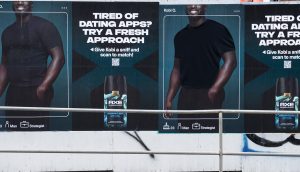Rebates for energy efficient laundry machines aren’t the most exciting thing in the world to market, especially when you’ve been extolling the virtues of water conservation for some years now, Tanya Bruckmueller-Wilson, media and public affairs consultant, Toronto Hydro, tells MiC. So this year, she decided it would be fun to spice up the annual rebate campaign with a fun and irreverent initiative called the Toronto Lost Sock Exchange.
The web-only promotion invites consumers to send Toronto Hydro the details of their lonely single sock, such as when and where it was worn, through the Lost Sock Exchange microsite. In return, the utility will do its ‘best to match it with a compatible sock partner.’ The first 100 people to submit their sad sock stories receive an eco-friendly drying rack (presumably so that their other socks don’t meet the same fate).
So what’s the connection between lost socks and energy-efficient washing machines? It’s ‘loosely based on science,’ Bruckmueller-Wilson jokes, explaining that manufacturers she interviewed indicated that it was possible fewer socks would be lost in front-loading machines, which also happen to be more energy efficient.
The utility followed up with a Leger Marketing survey that found that 14% of Torontonians don’t know where their lost socks end up, and one in five Toronto residents hold on to their single socks forever in hopes of finding a mate for it (a fact that brought forth a sock-saving admission of guilt from a fellow MiC staffer as well.)
The Toronto Hydro Lost Sock Exchange only officially debuted late last week, but a partnership with CP24 the week prior that asked viewers to share their lost-sock stories on the channel’s morning show earned an ‘astounding’ number of entries, Bruckmueller-Wilson shares (details on the exact number were not available as of press time).
The Lost Sock Exchange will mainly be promoted grassroots, she says, through online social outreach and through neighbourhood mommy groups. The target for the campaign is quite broad, she says, but young families are a focus – thanks to the high lost-sock rate among infants – and so most of the promotional efforts behind the campaign will focus on WOM through women.
The promotion officially runs through June 2010, but may continue longer if it proves popular enough, Bruckmueller-Wilson says.























